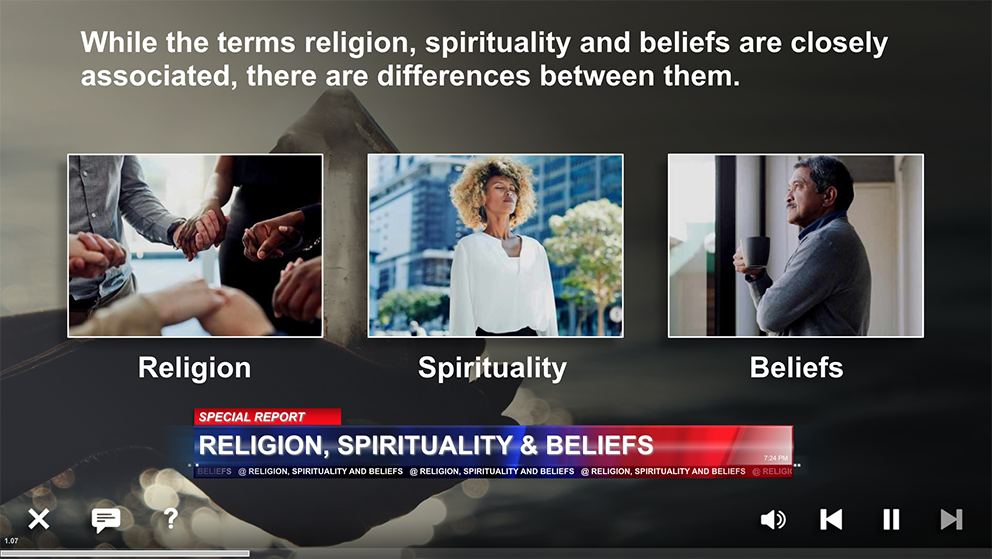As religious diversity in the workplace increases, so does the potential for expensive and harmful conflicts. This underscores the need for comprehensive for religious sensitivity training.
From 2016 to 2018, the U.S. Equal Employment Opportunity Commission saw religious discrimination claims soar by over 105%. This sharp increase is indicative of a changing demographic landscape that demands greater attention to religious diversity.
Take, for instance, the Hispanic community in the United States. Comprising primarily individuals of Mexican descent, as well as those from Puerto Rico, Central America, and various South American countries, this group showcases diversity within itself.
A common misconception is the homogeneity of religious beliefs among Hispanics, particularly regarding Catholicism. However, data from a Pew Research Center report reveals a seismic shift in this demographic: Catholic self-identification among Hispanics has dropped from 67% in 2010 to under 55% recently. Meanwhile, Protestant affiliation has risen to 22%, with 18% of Hispanics identifying as unaffiliated with any religion.
This increasingly complex picture of the religious composition of the Hispanic population emphasizes both the importance and difficulty of keeping track of the religious faith interests and needs of the workplace population, and the importance of providing workplace religious respect training.
Industry experts, such as Don Meinert, who tackled the subject in “Matters of Faith” for HR Magazine, predict escalating workplace conflicts due to religious differences. These conflicts often stem from:
- Inter-religious group tensions
- Requests for time off for religious observances
- Diverse religious dress codes and headwear
- Inclusivity during holiday celebrations
- Proselytizing attempts among employees
The solution to these challenges lies in the implementation of effective policies, heightened awareness, and respectful procedures. Policies that accommodate religious needs can cultivate a more inclusive environment, enhance employee engagement, and minimize legal risks.
A diversity calendar is a crucial tool for achieving these goals. It outlines significant religious dates, providing context on how these may influence workplace activities and demands. This calendar, alongside training that promotes understanding of religious practices, can significantly bolster workplace harmony and tolerance.
Equipping managers and employees with the knowledge to recognize and respect religious diversity not only fosters a more inclusive workplace but also builds a foundation for mutual respect and understanding across all levels of an organization.
Workplace Religious Conflict FAQs
What is an example of a religious conflict in the workplace?
An example of a religious conflict in the workplace could involve scheduling conflicts that arise when an employee’s religious observances coincide with regular work hours or company events. If the company does not acknowledge or accommodate this religious observance, it can lead to conflict between the employee’s religious practices and the company’s operational requirements.
What is an example of religious discrimination at work?
Religious discrimination at work happens when an employee is treated unfavorably because of their religious beliefs. For example, if an employee who wears a hijab, a head covering worn by some Muslim women, is passed over for a customer-facing role solely because of the headscarf, it constitutes religious discrimination. This is based on the prejudicial assumption that customers would react negatively to the hijab, without any actual evidence to support this claim.
What are three types of religious conflict?
Three common types of religious conflict in the workplace include interpersonal, institutional, and internal conflicts. Interpersonal conflicts arise when employees of different faiths clash over their beliefs or practices. Institutional conflicts occur when workplace policies inadvertently disadvantage certain religious groups, such as a scheduling policy that doesn’t accommodate religious holidays. Internal conflicts happen when an employee’s religious beliefs are at odds with their job duties, like a vegetarian employee required to prepare meat products.



